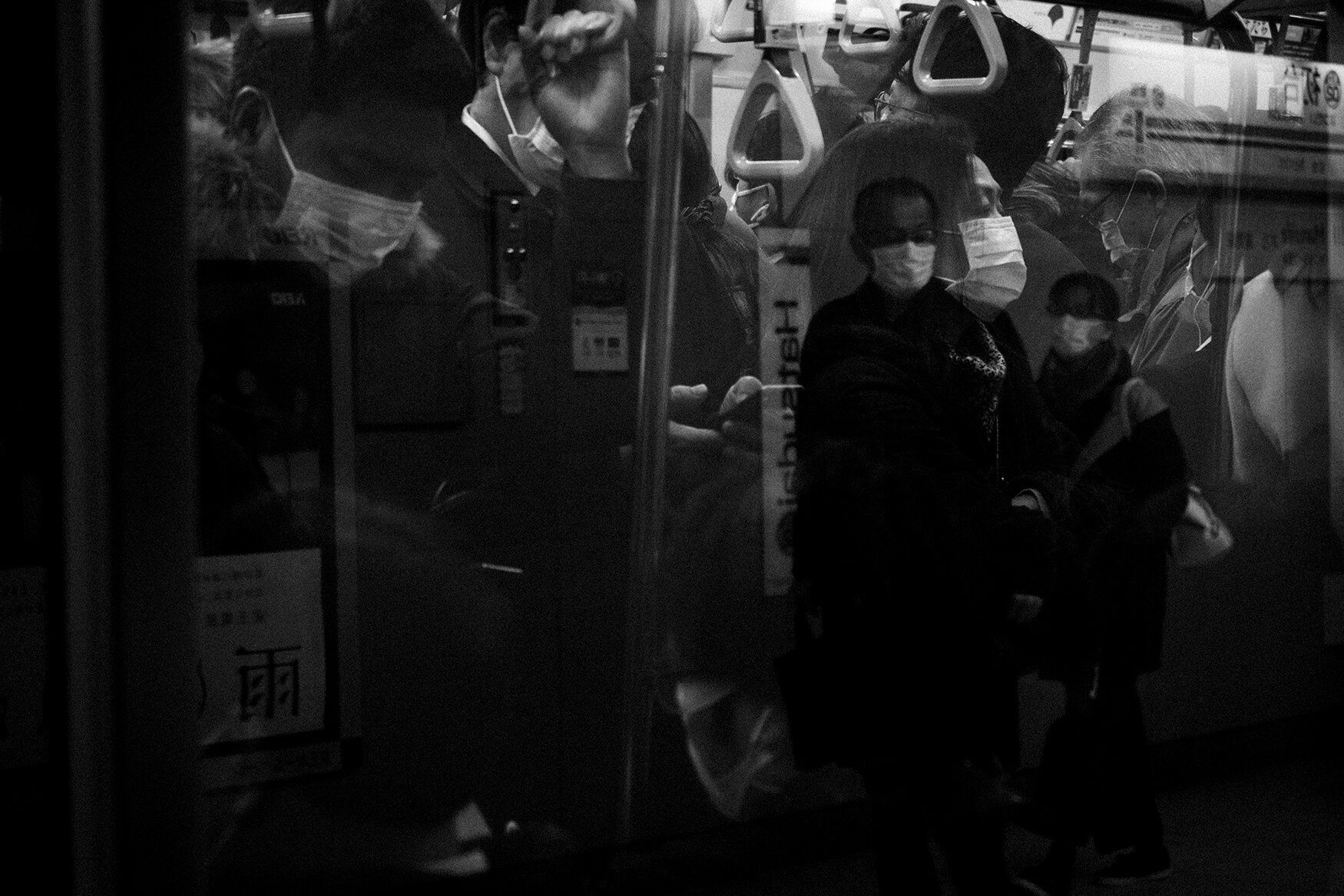AP photographer documents lava meeting sea in sizzling show

EDITOR’S NOTE: Associated Press photographer Jae C. Hong has spent much of the past few weeks in Pahoa, Hawaii, documenting the explosive eruption of the Kilauea volcano. Below, Hong recounts a rough and awe-inspiring trip on a bobbing boat to make images of the sizzling sea.
The glowing lava was extinguished as it met the water with the hiss of a million steam irons. An otherworldly cloud flourished from the fizzle, rapidly expanding outward and upward, morphing into different shapes. It smelled like burnt matches from the sulfur dioxide.
After a stomach-churning 90-minute boat ride in rough waters Sunday, we had arrived where the tongue of molten rock from Hawaii’s Kilauea volcano took its steamy last breaths of fire into crashing waves.
Passengers were warned they could get injured on the choppy seas and were offered refunds if they had second thoughts. I was on the boat as a working photographer for The Associated Press, so I popped two pills to prevent sea sickness and wrapped my two cameras in plastic.
Joe Kekedi takes pictures as lava enters the ocean, generating plumes of steam near Pahoa, Hawaii, May 20, 2018. (AP Photo/Jae C. Hong)
The boat lurched and swayed and the constant spit of surf made it feel I was drinking salt water.
It was raining at the start of the ride, but the skies turned blue as we motored toward the drier side of the island. Even with the clearing skies, our destination did not come into view until we closed in.
I’ve covered many wildfires in the West where plumes rise for thousands of feet and the sun appears pink through the smoke. They make for dramatic images and remarkable sunsets, but I had never seen anything like this.
Flowers are placed on the road as a tribute to the Hawaiian volcano goddess Pele in the Leilani Estates subdivision near Pahoa, Hawaii, May 19, 2018. (AP Photo/Jae C. Hong)
While Hawaii Island features five volcanoes, with the highest, Mauna Kea, reaching nearly 14,000 feet (4,265 meters) above sea level and sometimes capped with snow, Kilauea is far less prominent. But because it’s been active since 1983, the volcano’s fiery flow of lava into the sea has been a popular cruise destination for photographers and tourists.
Before getting on the boat, I had tried to get access close to the action on land without putting myself in imminent danger.
Peter Vance, 24, photographs lava erupting in the Leilani Estates subdivision near Pahoa, Hawaii, May 18, 2018. (AP Photo/Jae C. Hong)
The most frightening moment wasn’t seeing spurting lava or smelling the noxious fumes, but getting lost trying to hike into the closed Leilani Estates neighborhood through a tangled mess of trees and vegetation under dark jungle-like canopy. I stumbled on logs and obstacles hidden by rotting leaves, falling a half-dozen times before turning around and receiving well-earned mockery from locals.
Despite the setback, I was rewarded with many views of nature’s forces. I stood atop hardened lava that had swamped a road, leaving only a short section of double-yellow lines exposed. Molten magma, some still glowing red, had piled up nearly as high as tree tops on one road, making me feel like a tiny, powerless creature.
Center lane lines are partially visible along the lava-covered road in the Leilani Estates subdivision near Pahoa, Hawaii, May 11, 2018. (AP Photo/Jae C. Hong)
I contemplated stepping across a fissure in a road in Leilani, but had second thoughts after peering into the dark chasm that appeared to go to the center of the Earth. This is what it would be like if hell opened up, I told myself.
The boat provided a completely different perspective. We had been at sea for a while when the captain pointed in the distance and said the clouds ahead were, in fact, steam from the river of lava flowing into the ocean.
As we came close, the boat slowed and we could hear the sea sizzling as a giant white sulfurous plume boiled into the sky.
People watch a plume of steam as lava enters the ocean near Pahoa, Hawaii, May 20, 2018. (AP Photo/Jae C. Hong)
One of the most arresting scenes didn’t make a picture at all and came not from Kilauea’s spasms, but as I turned to see my fellow passengers silently slack-jawed at Mother Nature’s overwhelming power. During this impromptu moment of reflection, the roughly two dozen passengers put down their cameras and stared in awe.
It seemed out of sync with the universal urge these days to document everything from the mundane to the sublime.
Then instinct kicked in and passengers began shooting video and snapping selfies.
In the 30 minutes or so that we puttered about just beyond the cloud, I shot 858 frames at high speed to prevent motion blur. About half were marred by the boat’s constant sway and wobble that left them with a crooked horizon.
Among the few keepers, though, will be the image I still have in my mind. I hope not to lose that.
Gabor Kovacs, visiting from Hungary, watches as lava flows into the ocean, generating plumes of steam, near Pahoa, Hawaii, May 20, 2018. (AP Photo/Jae C. Hong)
Lava flows into the ocean near Pahoa, Hawaii, May 20, 2018. (AP Photo/Jae C. Hong)
Plumes of steam rise as lava enters the ocean near Pahoa, Hawaii, May 20, 2018. (AP Photo/Jae C. Hong)
Plumes of steam rise as lava enters the ocean near Pahoa, Hawaii, May 20, 2018.(AP Photo/Jae C. Hong)
Follow AP’s complete coverage of the Hawaii volcano here: https://apnews.com/tag/Kilauea
Associated Press writer Brian Melley in Los Angeles assisted in writing this story while Hong is in the lava zone.
Photos by Jae C. Hong
Visual artist and Journalist





